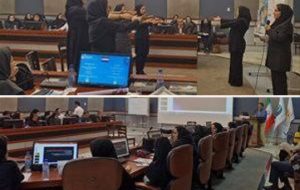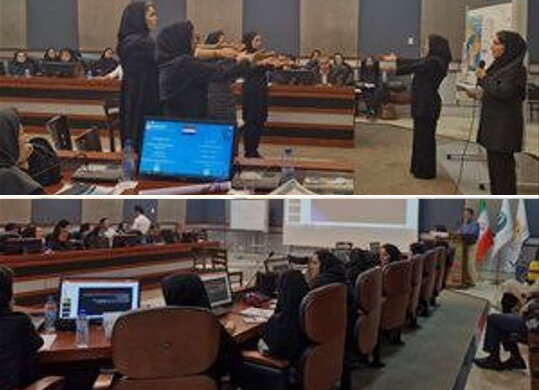Strong Families Program focuses on seven provinces
TEHRAN – The United Nations Office on Drugs and Crime (UNODC) has implemented the second phase of Strong Families Program in seven provinces of the country in a bid to strengthen family structures and enhance community resilience. The pilot phase was initiated in the winter of 2019 in Tehran and Alborz provinces. Since then, Iran


TEHRAN – The United Nations Office on Drugs and Crime (UNODC) has implemented the second phase of Strong Families Program in seven provinces of the country in a bid to strengthen family structures and enhance community resilience.
The pilot phase was initiated in the winter of 2019 in Tehran and Alborz provinces. Since then, Iran has continued to drive the program’s implementation, entering the second phase with a focus on Tehran, Kerman, Lorestan, Khuzestan, Khorasan Razavi, Hormozgan, and Sistan-Baluchestan provinces, UNODC website reported.
In this line, the UNODC, in cooperation with the Drug Control Headquarters and the Ministry of Health, Treatment, and Medical Sciences, held the ‘Training of Evaluators’ at the International Conferences Centre on Kish Island on October 15–17.
The Strong Families Program underwent a meticulous adaptation to resonate with Iranian culture, ensuring relevance and effectiveness.
Through collaboration with local institutions and NGOs, UNODC facilitated the implementation of the program in diverse settings such as schools, community centers, and health facilities.
The subsequent evaluations showcased notable improvements in parenting practices, youth mental health, and resilience.
Through cascade training of trainers and strategic partnerships with medical universities, the program’s impact has extended to the seven mentioned regions.
The recent training session saw implementing teams from various medical universities sharing their accomplishments, innovative strategies, and hurdles faced during program implementation.
Encouragingly, the presentations highlighted the program’s high acceptance rate and governmental support, paving the way for sustainable scaling.
Notably, expert facilitators namely Ghonche Raheb and Omid Massah, from the Drug Abuse Research Institute of University of Rehabilitation and Social Health Sciences, imparted essential skills and insights to participants, fostering a deeper understanding of evaluation techniques and tools.
As UNODC Iran continues its mission to strengthen families and communities, the resounding success of the Strong Families Program underscores its potential for lasting impact. With a foundation built on collaboration, adaptation, and evaluation, UNODC Iran is poised to scale up the program across Iran.
This training was made possible through the funding received from the Kingdom of Netherlands.
Strong Families Program
The Strong Families Program is a family skills prevention program created for families living in challenged settings that was designed by researchers and experts from UNODC.
The program aims to strengthen family bonds and increase the resiliency of families to difficult external circumstances, thereby reducing the incidence of drug use and harmful behaviors among youth who participate in the program. In the fall of 2019 and winter of 2020, UNODC Iran, with funding assistance from the Government of Japan and support from its national counterparts, adapted and piloted the Strong Families Program in 10 different centers across the cities of Tehran and Karaj.
A scientific evaluation of the impact of the pilot implementation found significant positive improvements on various psychosocial measures for the caregivers and children that participated in the program.
MT/MG
